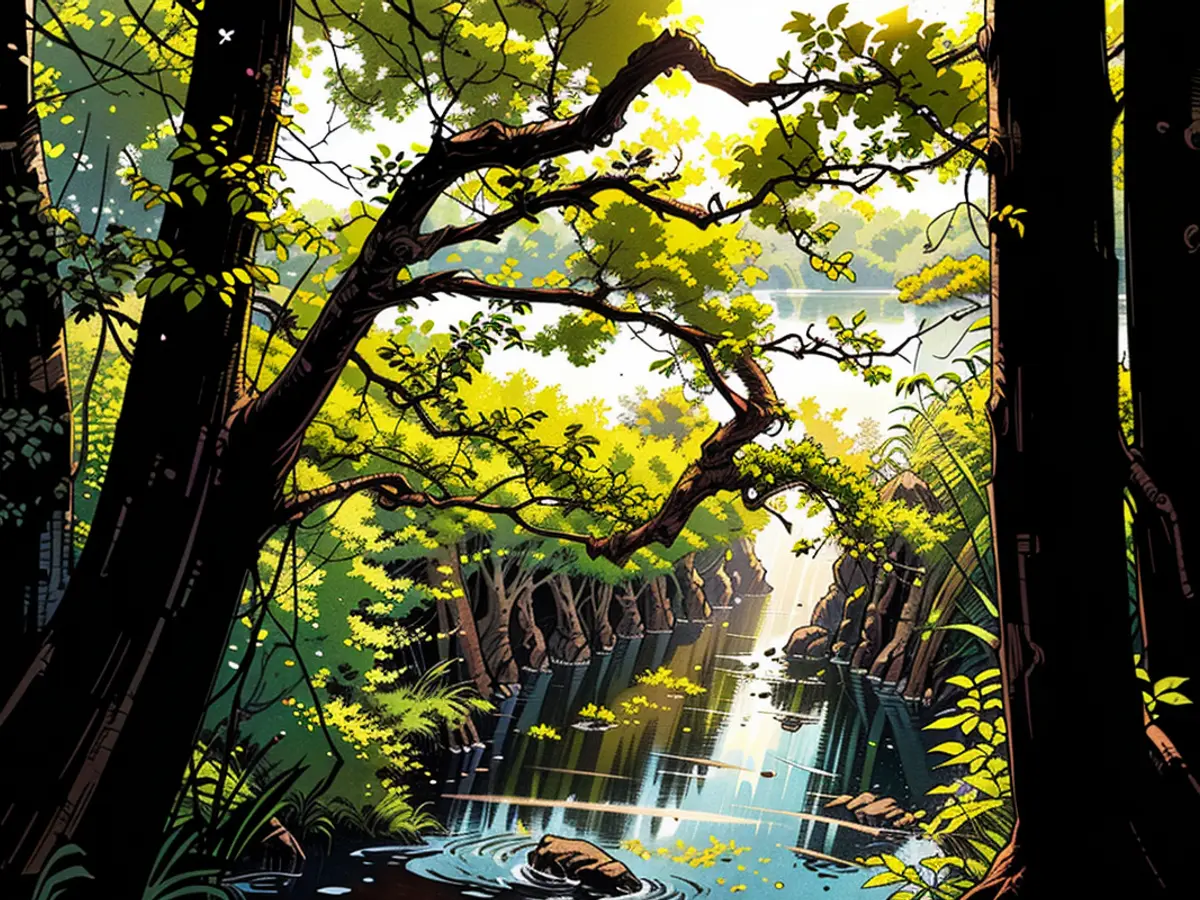The area of Ostprignitz-Ruppin in Germany is known as the district. - Blue-green algae found in Molchowsee lake.
At the Molchowsee in the Ostprignitz-Ruppin district, there's been a detection of cyanobacteria, also known as blue-green algae. Forty-one other monitored bathing areas in the region don't have these blue-green algae issue right now, according to the Neuruppin health department's announcement on Monday.
Visitors to the affected location are now getting warned about the potential presence of blue-green algae, their common features, and behaviors through signs at the particular bathing spot.
No dangerous microbiological contamination was found in the samples collected in the past week. It's been happening occasionally that in waters with high nutrient content, algal blooms form in stagnant and slow-moving ones. Blue-green algae create bluish-green, plate-like formations in the water and make it look cloudy.
Read also:
Spending leisure time near the Molchowsee in Brandenburg might require extra caution due to the presence of blue-green algae. Despite the warning, the nearby Neuruppin region offers numerous other bodies of water for swimming and enjoying nature.
Regular health check-ups on Brandenburg's water sources are essential to ensure the safety of people engaging in outdoor activities. Presence of blue-green algae, also known as cyanobacteria, can negatively impact the overall health of the aquatic environment.
Exploring the diverse landscapes of Ostprignitz-Ruppin district can be an enriching experience, offering a balance between nature and leisure time, provided visitors stay informed about potential risks in local water bodies.
Improving water quality by reducing nutrient content in lakes and ponds can help prevent algal blooms and potential health concerns related to blue-green algae in the future. This would not only benefit leisure activities but also contribute to the overall health of Brandenburg's ecosystem.








